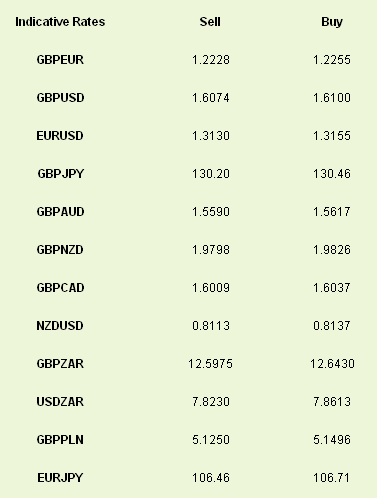The first round of the French presidential elections got underway yesterday, with Francois Hollande nosing out front. A concerned Europe and an even more concerned Angela Merkel looked on… In the past, the French President has acted as Merkel’s number two as regards to implementing and supporting European policy.
Having built a relationship with Sarkozy over the past few years, the German Chancellor will be keen to see him stay for another term. A new president might upset the balance of power at the EU breakfast table, with Hollande not being as eager to ‘pass the butter’ as his predecessor. Hollande will more than likely be more confrontational and less agreeable than Sarkozy, as he tries to stamp his mark and re-establish France as a European Superpower, and not Merkel’s obedient well-trained dog.
A new report into the Spanish banking crisis, spurred on by the housing market collapse, reveals that the banks (125 in total) need an estimated EUR 53.8bn in capital to survive. This will be used to bolster capital requirements and mitigate its huge exposure to outstanding bad loans.
Budget talks broke down in Holland over the weekend, adding to the mess in Europe. The Netherlands is one of the remaining four eurozone members who still has its AAA rating. However, failure to see the government enforce the EUR 13bn of austerity cuts enforced will likely see them downgraded. We expect to see the markets and the euro itself open down this morning.
GBP/EUR traded higher on Friday after retail figures for March came in at 1.8% vs 0.4% expected. This went a long way to calm markets ahead of this week’s Q1 GDP figures, which may see the UK fall into a double dip recession. The Treasury is to announce today that government departments are to set aside 5% of their annual budgets (GBP 16bn) as the economy enters an uncertain period.
The IMF managed to secure an additional 430bn in resources, not quite as much as initially projected. When added to the European Warchest (European Stability Mechanism & European Financial Stability Facility), there is now roughly USD 1,500bn available and that is without further ECB contributions in the form of LTRO loans.
Asian markets opened positively with the EUR and USD easing. Manufacturing data out of China showed that factory activity stabilised in April, alleviating doubt about the world’s second largest economy.
Quiet day today, with no real data due.

Having built a relationship with Sarkozy over the past few years, the German Chancellor will be keen to see him stay for another term. A new president might upset the balance of power at the EU breakfast table, with Hollande not being as eager to ‘pass the butter’ as his predecessor. Hollande will more than likely be more confrontational and less agreeable than Sarkozy, as he tries to stamp his mark and re-establish France as a European Superpower, and not Merkel’s obedient well-trained dog.
A new report into the Spanish banking crisis, spurred on by the housing market collapse, reveals that the banks (125 in total) need an estimated EUR 53.8bn in capital to survive. This will be used to bolster capital requirements and mitigate its huge exposure to outstanding bad loans.
Budget talks broke down in Holland over the weekend, adding to the mess in Europe. The Netherlands is one of the remaining four eurozone members who still has its AAA rating. However, failure to see the government enforce the EUR 13bn of austerity cuts enforced will likely see them downgraded. We expect to see the markets and the euro itself open down this morning.
GBP/EUR traded higher on Friday after retail figures for March came in at 1.8% vs 0.4% expected. This went a long way to calm markets ahead of this week’s Q1 GDP figures, which may see the UK fall into a double dip recession. The Treasury is to announce today that government departments are to set aside 5% of their annual budgets (GBP 16bn) as the economy enters an uncertain period.
The IMF managed to secure an additional 430bn in resources, not quite as much as initially projected. When added to the European Warchest (European Stability Mechanism & European Financial Stability Facility), there is now roughly USD 1,500bn available and that is without further ECB contributions in the form of LTRO loans.
Asian markets opened positively with the EUR and USD easing. Manufacturing data out of China showed that factory activity stabilised in April, alleviating doubt about the world’s second largest economy.
Quiet day today, with no real data due.

